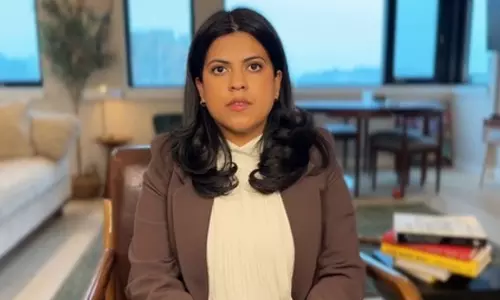
BJP never demanded temples in Mathura, Varanasi: JP Nadda
text_fieldsThe BJP does not have an aspiration to build temples in Mathura and Varanasi, but being a big party, leaders express their personal views based on their ideological beliefs, which will only be shaped with the endorsement of the party’s Parliamentary Board, said BJP National President JP Nadda.
In talks with The Indian Express, Nadda also rejected media speculation of a fraught relationship between the RSS, the ideological parent organization of the saffron party, and the BJP, claiming that both organizations are working in tandem in their respective fields.
The BJP chief stated that the party had only one demand of building a temple in Ayodhya, referring to the 1989 Palampur resolution to clarify the party’s stand on other temple-related issues and to distinguish individual statements.
During election campaigns for the ongoing Lok Sabha elections, Uttar Pradesh Chief Minister Yogi Adityanath and Assam CM Himanta Biswa Sarma announced the construction of temples in Mathura and Varanasi as the party’s promises.
While Yogi claimed that it had only demanded three sites, referring to Ayodhya, Kashi (Varanasi), and Mathura, Himanta Biswa said that grand temples would be built in Varanasi and Mathura if the National Democratic Alliance (NDA) led by the BJP gets more than 400 seats.
Nadda clarified that the BJP's policy and agenda are shaped through discussions within its Parliamentary board and endorsed by the national council, rather than being influenced by individual statements.
Nadda further claimed that the BJP has evolved into a party which can operate independently of the RSS. Nadda highlighted the distinction between the two organizations, emphasizing that while the RSS is a cultural entity, the BJP is a political one.
He acknowledged the early dependence on RSS due to the BJP's smaller size and capabilities but asserted that the party has now grown robust enough to function on its own.
Nadda also addressed the relationship between the BJP and the RSS, noting that both organizations maintain mutual respect and have a history of collaboration driven by a shared commitment to national interests.
He dismissed media speculations and conspiracy theories about the dynamics between the two, reiterating that their relationship is harmonious and not fraught with the tensions some allege.






















